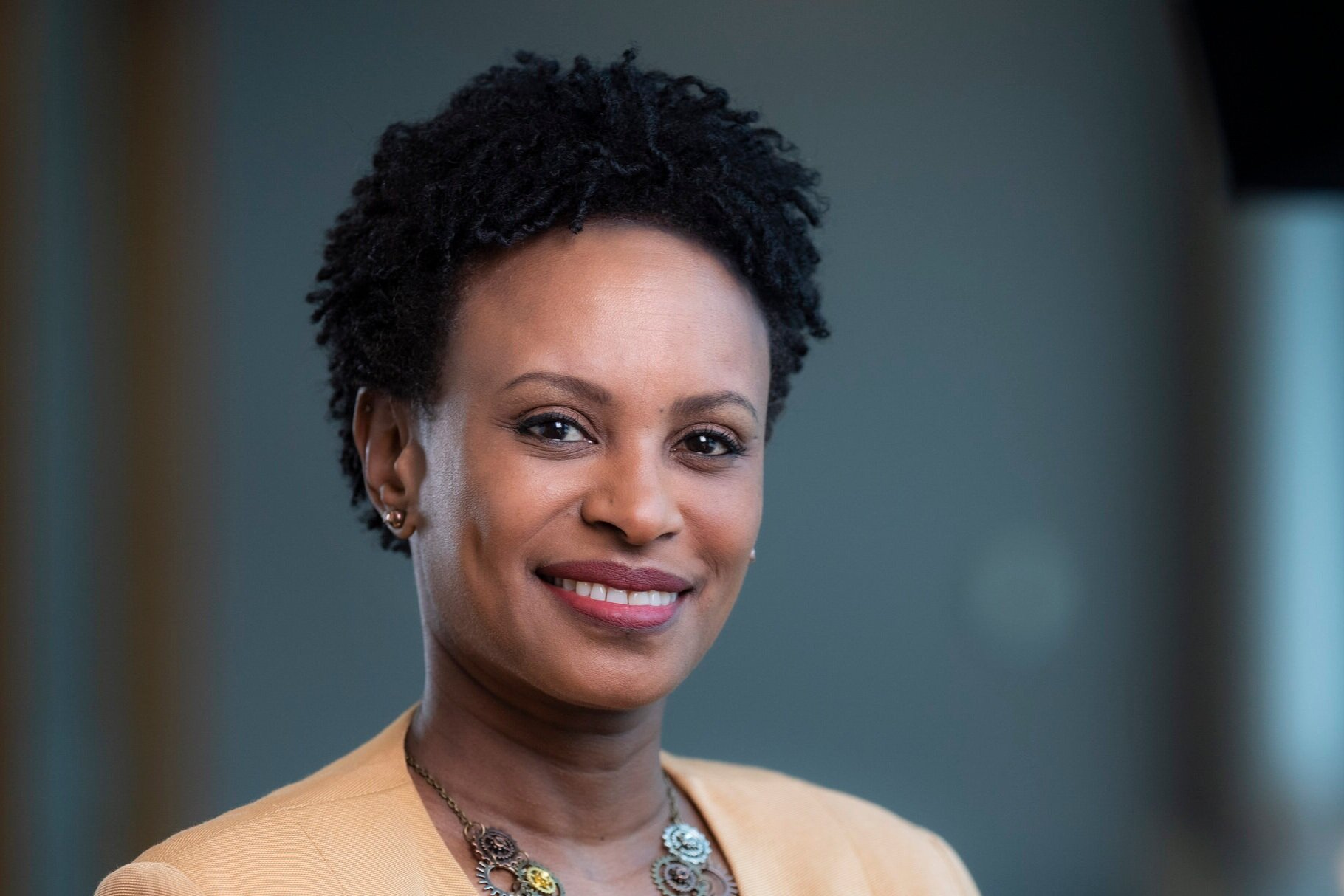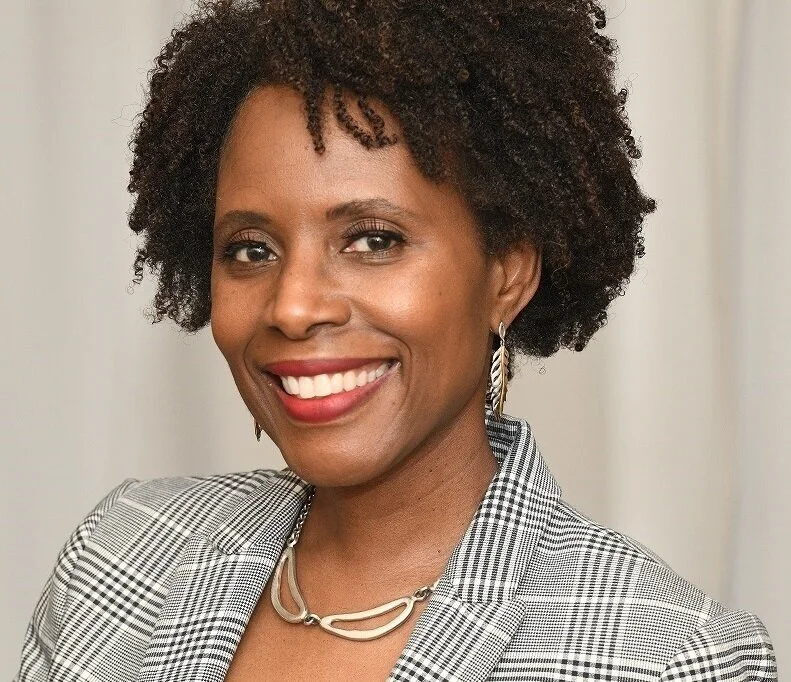Rhonda McEwen is the U of T's Mississauga campus new Dean & Vice-Principal
May 12, 2021
Academic leadership has evolved over the years to the point where the emphasis is no longer on just scholarly achievements.
Providing a platform for students, faculty and staff to be successful is still the primary goal.
But with education changing, administrators are required to incorporate technologies and practices to make their institutions relevant.
Dr. Rhonda McEwen brings an expansive and unique skill set to her new position as Dean and Vice-Principal of the University of Toronto Mississauga campus.
She assumes the role on July 1.
Besides being the university campus Special Adviser to the Vice-President and Principal on Anti-Racism & Equity, McEwen is the Director of the Institute of Communication, Culture, Information & Technology (ICCIT).
Under her leadership, ICCIT has developed into a stand-alone unit with a new professional experience Certificate in Digital Media, Communication & Technology.
During her five-year term, it’s enrolment has grown by more than 20 per cent, student retention has improved to 90 per cent and successful faculty grant applications have risen by 70 per cent.
“A lot of my work has been in product development for technology,” said McEwen who is a member of the university’s Black Faculty Working Group. “For a telecom engineer like me, I think about networking not just in terms of people, but the technology infrastructure that supports those interconnections. In terms of managing the future, students want to get back on campus and we want to make that happen for them and for our faculty who research on campus too. However, we are looking at the cases where it might be quite useful for students to have some courses that are accessible online.”
Prior to pursuing an academic career, McEwen spent 15 years working and researching digital communication media for companies providing services and in management consulting to those companies.
“I had the amazing opportunity to travel the world as a consultant and work on very engaging cutting-edge projects with firms that at that time had quite a lot of capital to put into those new ideas,” she pointed out.
While at Deloitte UK nearly two decades ago, she was part of the team that wrote the first White Paper on how mobile devices can be used to access emails and calendars.
“I was happy with the work I did there in terms of on the back end executing on the product side, but I wanted to understand more fully how people were affected and impacted by the technology,” McEwen said. “These are not questions commercial businesses can provide immediate answers to as the cycle for business tends to be within a financial year where you want to see results based on your investment. In the academic world, there is more time and the ability to do longer studies and examine things more broadly to see what is the impact on the people using the technology. I was very curious about that side of things.
“I really wanted to know how people with disabilities are being affected by these kinds of technologies, how was the workforce being transformed in terms of labour as we make these technologies accessible to people and what’s happening to work life balance as people’s phones buzz through the night.”
Dr. Rhonda McEwen (Photo contributed)
Seeking answers, McEwen pursued a PhD in Information at the University of Toronto. In 2009, she successfully defended her dissertation, ‘A World More Intimate: Exploring the Role of Mobile Phones in Maintaining and Extending Social Networks’.
The study investigated the roles that mobile phones play in supporting relationships of young people as they transition to and through their first-year of university in Toronto. Focussing on information practices during a transition that tests the resilience of support networks, the study queried the extent to which mobile phones play a role in keeping relationships intact, thus enabling students to maintain a sense of social cohesion and belonging.
Growing up in Tacarigua in east Trinidad, McEwen had an interest in science and technology.
“I would open a Walkman to see what technology was inside it,” the Canada Research Chair in Tactile Interfaces, Communication & Cognition said. “I was always interested in phones and mobile technology. When these technologies later on became touch screen, I became really fascinated with the idea of human interaction and touching these devices. I was interested with how the brain was coping with this additional sensory information that comes from touch.”
Completing high school at St. Joseph’s Convent, McEwen taught for a year at St. Theresa Girls Roman Catholic School before enrolling at the University of the West Indies (UWI) St. Augustine campus.
Though excelling in the science subjects and applying to do Chemistry and Management at the undergraduate level, she switched to Sociology and Management.
“I was interested in understanding some of the psychology and social aspects that I am still passionate about today,” she said.
McEwen and a friend were the first UWI students to do a double major in Sociology and Management.
“That was never done before and our petition was successful,” she said. “I learnt I could go into a field that I wasn’t technically prepared for and still succeed if I worked very hard. When you look at my history from that time to now, I have always been combining business and technology with social impact. UWI gave me the ability to do that. I am so proud to be a UWI graduate as it was the most difficult of four academic degrees.”
Graduating in 1994 as the valedictorian with First Class Honours and the recipient of the Silver Gilt Medal awarded to the final-year student with the best academic performance, McEwen spent two years with the Telecommunications Services of Trinidad & Tobago before going to England on a Chevening Scholarship offered to students from the Commonwealth.
Finishing a Master of Business Administration in Information Management with honours at City, University of London in 1997, she joined Cable & Wireless UK as an Information Technology Compliance manager.
In that role as the youngest team lead at the time, she travelled to nearly 20 countries, including the United Arab Emirates, Seychelles, Maldives, Panama, South Africa, Bermuda, Ascension Island and the Falkland Islands, working on Y2K IT and engineering compliance.
Dr. Rhonda McEwen is a University of the West Indies graduate (Photo by Nicholas Iwanyshyn)
At the end of the project, McEwen returned to the classroom to pursue a Master of Science in Telecommunications at the University of Colorado Boulder College of Engineering & Applied Science before joining Deloitte Consulting.
“After a short stint working in Atlanta, I returned to England and I met my future husband while working on one of the first projects I was assigned,” the Canadian Black Scientists Network member recalled. “He was from the Deloitte Toronto office as they had brought people in from different countries to work on this specific project.”
Relocating to the Greater Toronto Area in 2003, McEwen spent two years with IBM Consulting Global Business Services Canada as a Senior Management Consultant before making the leap to academia.
She was a Teaching Assistant and Sessional Instructor for four years at the U of T St. George Campus before becoming an Assistant Professor in the Faculty of Information.
In 2017, McEwen and Adam Dube co-authored ‘Understanding Tablets from Early Childhood to Adulthood’ that offers an alternative to dominant and populist narratives that young people are intuitively able to successfully use tablet devices.
Adopting a research-driven approach, the book contests the ideology that touch-technologies are easier to understand and identifies the factors that contribute to communicative encounters between users and tablets. Communication theory and cognitive psychology concepts and methods are employed to offer an epistemological exploration of user-tablet interaction with a focus on the use of these technologies in educational settings.
In the 1970s, McEwen and her younger brother resided in the United States’ Upper Midwest while their parents – Ronald and Erlene Benjamin -- did their undergraduate and graduate degrees in four years at the University of Wisconsin.
Married for 18 years, she and her husband have two teenage children.
An avid reader, McEwen relishes playing mas’ and seizes every opportunity to return to Trinidad & Tobago for Carnival.
“My mom was with Peter Minshall for years and I played ‘Pretty Mas’ with my friends before I went to England,” she said. “Once my children got older, I have gone back in the last five years up until 2020 where I played with ‘The Lost Tribe’.”
McEwen is proof that not all professors are boring and serious all the time.








